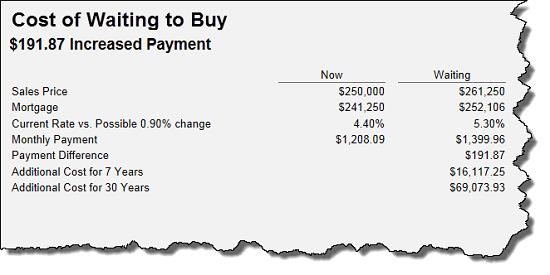An Unexpected Expense
An Unexpected Expense
|
|
In a study released by TD Bank, 65% of buyers with mortgages that required mortgage insurance said the higher monthly payment was more than they originally expected.
Private mortgage insurance is required on loans that exceed 80% of the home’s value. For conventional loans, the premiums range from 0.5% to 1% annually. The PMI could add close to $100.00 a month to the payments on a $200,000 mortgage and over $200.00 a month on a FHA mortgage.
FHA has two components to its mortgage insurance which includes an up-front charge on closing of the loan and an annual charge. The up-front premium is 1.75% of the mortgage which can be paid in cash at closing or added to the mortgage amount. The annual premium ranges from 0.45% to 1.35% depending on the loan-to-value and term of the mortgage.
Most lenders are required to automatically cancel coverage when a 78% loan-to-value is reached which on a 30 year loan with normal amortization could be eight to eleven years depending on original loan amount and interest rate. If the value of the home has increased as documented by an appraisal so that the current mortgage is below 80% loan-to-value, the lender can be petitioned to eliminate the PMI.
Beginning in April, 2013, FHA requires the mortgage insurance to be paid for the entire term of the mortgage. Prior to this rule change, it was required to remain in effect for a minimum of five years but could be cancelled when the mortgage is reduced to 78% of the original purchase price.
A homeowner can greatly reduce their cost of housing by avoiding mortgage with a minimum 20% down payment. If a higher loan-to-value mortgage is required to purchase the home, the objective should be to pay down the mortgage amount to relieve the need for the mortgage insurance. Generally, loans with lower loan-to-value mortgages also have lower interest rates.





